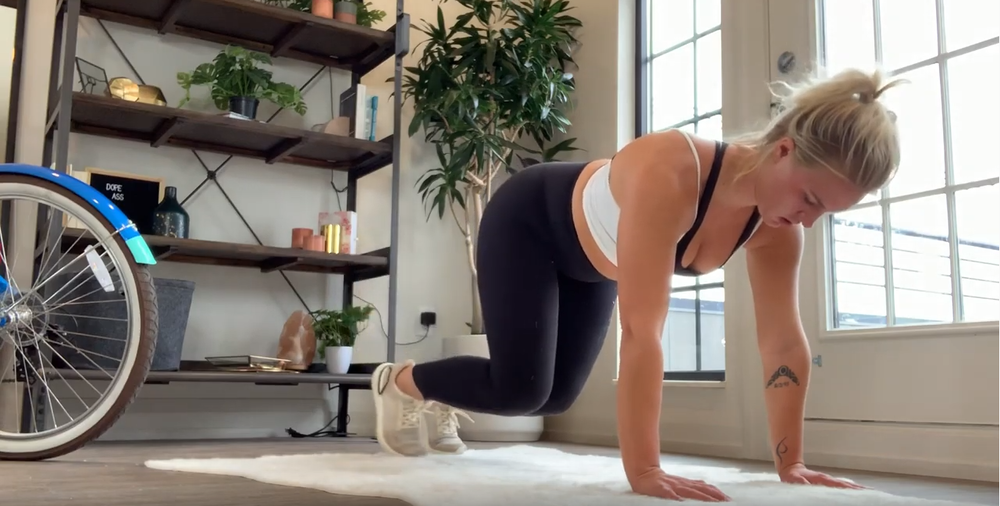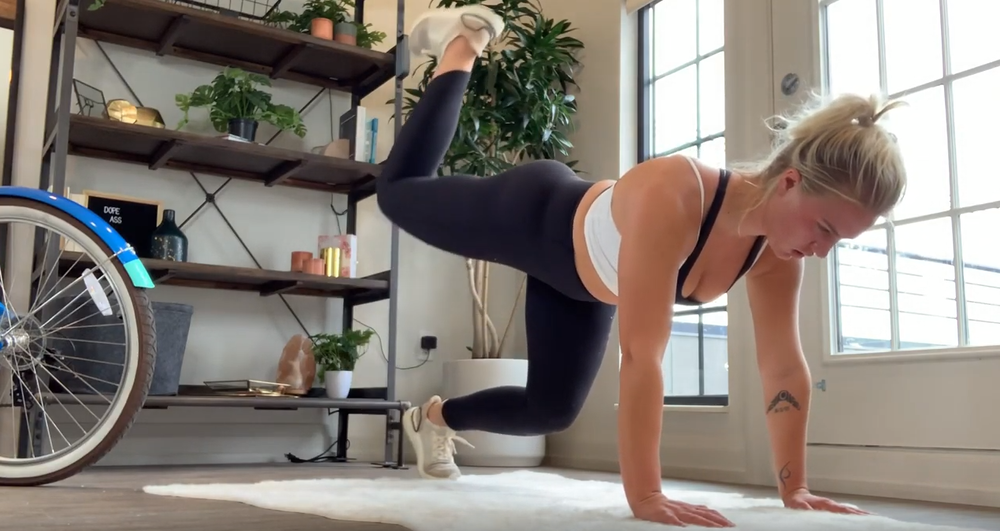Winter has officially arrived.
Not only are the days short and gloomy, but it’s also freezing outside. Like many of you who live in the Midwest or really anywhere that experiences all four seasons in a matter of days or hours (I’m looking at you, Ohio), I am no stranger to seasonal depression or seasonal affective disorder (SAD).
If you’re not familiar with SAD, some symptoms include:
- Little to no energy or fatigue
- Difficulty sleeping
- Loss of interest in things you used to enjoy
- Trouble thinking clearly or concentrating
- Feeling irritable or easily agitated
- Frequent or daily feelings of depression
- Thoughts of death or suicide
In the past, people suffering from seasonal depression could at least get out of their homes, go to the gym, meet a friend for a drink, or grab dinner with their families. Because of COVID 19, many of us are feeling isolated, stuck indoors, and sometimes alone, this winter.
This year, it’s even more crucial to keep a positive mindset and do everything in your power to offset symptoms of seasonal depression. With that being said, I put together some helpful tips for combating seasonal depression this year. These are all recommendations that I have found useful when I’m feeling the emotional and psychological effects of weather and lifestyle changes.
Get a Light Therapy Lamp
During the winter, there are many times when the weather can be overcast for days on end. Not to mention, it gets dark much earlier than other seasons. The lack of sunlight can cause serotonin levels in your body to decrease, causing symptoms of seasonal depression. Incorporating a light therapy lamp into your daily routine for about 10 minutes a day can help boost your mood thanks to the vitamin D it creates.
This lamp is also great for keeping your internal clock in check. You can’t control how early the sun sets during winter and fall, but you can trick your body into thinking it’s still light outside. If you frequently find yourself in disbelief that it’s only 7 p.m. when it feels like midnight, you need to try out this light therapy lamp.
Exercise Regularly
I realize that this one is easier said than done.
The last thing most people want to do when they’re already feeling sluggish and run down is exercise. Trust me, I get it. However, my advice is to try your best to push through it and force yourself to get some form of physical activity into your day. One of my favorite tips to get moving when I don’t feel like it is to count to 3 and get started before I start to overthink and let my anxiety take control.
Exercising to combat seasonal depression is so important because of the endorphins that are released in your body during a workout. These endorphins boost your mood and will help to offset some side effects of seasonal depression. Exercising regularly also gives you energy, can help you sleep better, and reduces stress and anxiety.
If you’re looking for ways to get your body moving at home, try some of my favorite at-home exercises or purchase my HIIT30 guide, a 30-day program to help get you motivated.
Practice Good Sleep Habits
Getting a quality night’s sleep is going to help you immensely if you’re struggling with seasonal depression. Not getting enough sleep or bad quality sleep can obviously impact your energy levels but it can also affect your mood and concentration.
If you have trouble falling asleep or don’t feel like you’re getting enough sleep, start giving yourself a bedtime. It might be hard to stick to at first, but eventually, you’ll start to get tired at that time.
Another common problem that prevents good sleep is too much screen time right before bed. The light from your screen can mess with your internal clock and hinders your natural melatonin production. You should try and avoid all screens for at least 30 minutes before you go to sleep.
Pro tip: If you have an exceptionally hard time getting to sleep, try melatonin gummies.
Get Outside
After being in lockdowns, quarantines, and isolations for almost a full year (!!), it’s important for people to get outside when they can.
Even if it’s cloudy, you can still get some benefits from the sun. Go for a walk around your neighborhood. Walk to the park. Take a hike. Check out local murals. Even if you are just sitting outside, the little bit of sunlight you get will help combat seasonal depression symptoms.
And as always, mask up.
Talk to Someone
This one might be the most important tip. If you are feeling symptoms of seasonal depression or any depression at all, please take the time to talk to someone you trust about it. If you are noticing very serious side effects, talk to your doctor or therapist about what you are experiencing.
Seasonal depression is not just complaining about it being cold and gloomy outside. It is a very real disorder, and it does not affect everyone exactly the same way. For some people, the effects can be very mild, but for others, it’s potentially life-threatening.
If you’re not sure who you can talk to, there are helplines you can call like BetterHelp, an online counseling and therapy service and the National Suicide Prevention Hotline is always available at 800-273-8255.
Stay Busy
Staying busy with things you enjoy doing can help keep your mind occupied and help reduce the stress and anxiety that comes with seasonal depression. There are plenty of easy activities you can do from home to keep your mind engaged.
Take advantage of this time at home by starting a new hobby, learning to play an instrument, learn a new language, color an adult coloring book, read, or watch movies.
Practice Self-Care
Practicing self-care is a great way to lower your stress and anxiety levels. Doing activities that promote self-care allows you the opportunity to check in on yourself while keeping your mind occupied with something positive.
Self-care can be as simple as taking a bubble bath or lighting your favorite candle. You could do your hair and makeup even if you’re not going anywhere. Just do whatever you like to do that makes you feel happy, accomplished, or worthy. There’s no “right” or “wrong” way to do it.
The winter and fall months can take a draining toll on you mentally, emotionally, and physically. That doesn’t mean that you have to suffer through these next few months.
If you think you might be experiencing seasonal depression, I encourage you to try some of my tips or talk to someone you trust. Tomorrow is a new day. Wishing you all the best.
Xo, Mik




[…] been my readers for a while know I’ve written about this two years ago. Feel free to check out my best tips for combating Seasonal Affective Disorder (aptly abbreviated SAD) if you’re new to the realization that you just cannot without the sun. In […]